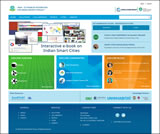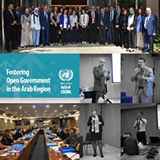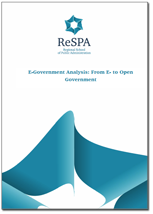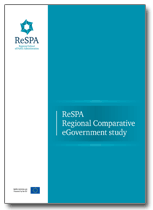Louise Thomasen, forward-thinking digital government expert with a passion for groundbreaking technology. My areas of expertise and passion span across:
- Trends that are transforming society through demographic and technological changes
- Innovative technologies such as AI, open governance, and open data
- Data governance and data quality
- Public digital services and user experience
- Interoperability and whole-of-government approach
- Smart cities and urban development
- Transparency, anti-corruption, and promoting open government
- Utilising social media for citizen participation
- The impact of technology on our preferences, behaviours, and societal dynamics

 My "corona-hobby" has been to develop a webapp for managing your home(es). Users can log information about their home - a domicil, but categorise it in such a way that information can be found again. Users can make log entries, to-do lists, post-it's, receipts, and how-to guides. They can categorise by spaces/rooms, service number contacts, different things one may have in your home, and events.
The webapp is free to use, and can be accessed at
My "corona-hobby" has been to develop a webapp for managing your home(es). Users can log information about their home - a domicil, but categorise it in such a way that information can be found again. Users can make log entries, to-do lists, post-it's, receipts, and how-to guides. They can categorise by spaces/rooms, service number contacts, different things one may have in your home, and events.
The webapp is free to use, and can be accessed at  I was one of three accessors assessing and shortlisting Covid-specific public service projects and applications from the Western Balkans from the digital government, eEconomy, e-Health, eLearning, and social innovation areas for the Regional School of Public Administration (ReSPA) and OECD-SIGMA
I was one of three accessors assessing and shortlisting Covid-specific public service projects and applications from the Western Balkans from the digital government, eEconomy, e-Health, eLearning, and social innovation areas for the Regional School of Public Administration (ReSPA) and OECD-SIGMA Hack Pandemic Aarhus was a weekly virtual hackathon-like meetup for developers, designers and creatives in Aarhus, Denmark with the goal of building Corona-hacking applications. I participated both as an organiser and participant in the hackathon. Together with three other participants I developed the ‘Cooking Together, while Dining Apart’ website available at
Hack Pandemic Aarhus was a weekly virtual hackathon-like meetup for developers, designers and creatives in Aarhus, Denmark with the goal of building Corona-hacking applications. I participated both as an organiser and participant in the hackathon. Together with three other participants I developed the ‘Cooking Together, while Dining Apart’ website available at  In 2018 I participated as a jury member of the
In 2018 I participated as a jury member of the  For the
For the  Implementing open government is not an easy task, as it requires changes to long-standing systems, changes in the way government thinks and
changes in the way citizens perceive their responsibility and role in governance. To aid in the implementation of open government in the Arab region,
Implementing open government is not an easy task, as it requires changes to long-standing systems, changes in the way government thinks and
changes in the way citizens perceive their responsibility and role in governance. To aid in the implementation of open government in the Arab region,

 In July/August 2017 I chaired the
In July/August 2017 I chaired the 
 There is a need for citizen-centric services to be integrated across all channels: digital, call-centre, face-to-face in the Arab region. To adopt interoperability and standards and to integrate both back and front government offices. I helped conducting desk research on service integration cases for a report from
There is a need for citizen-centric services to be integrated across all channels: digital, call-centre, face-to-face in the Arab region. To adopt interoperability and standards and to integrate both back and front government offices. I helped conducting desk research on service integration cases for a report from 




